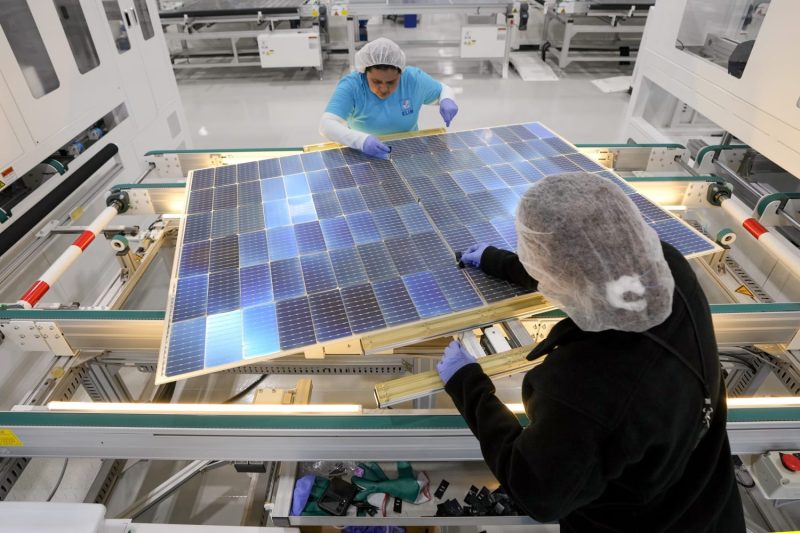Israel receives names of four female hostages Hamas will release Saturday
How the Inflation Reduction Act sparked a manufacturing and clean energy boom


The Inflation Reduction Act has sparked a manufacturing boom across the U.S., mobilizing tens of billions of dollars of investment, particularly in rural communities in need of economic development.
The future of those investments could hinge on the outcome of the U.S. presidential election. The prospect of a Republican victory has shaken the confidence of some investors who worry the IRA could be weakened or in a worst-case scenario repealed.
Companies have announced $133 billion of investments in clean energy technology and electric vehicle manufacturing since President Joe Biden signed the IRA into law in August 2022, according to data from the Massachusetts Institute of Technology and the Rhodium Group.
Actual manufacturing investment has totaled $89 billion, an increase of 305% compared to the two years prior to the IRA, according to MIT and Rhodium. Overall, the IRA has leveraged half a trillion dollars of investment across the manufacturing, energy and retail sectors, according to the data.
“It is having a transformative effect within the manufacturing sector,” said Trevor Houser, a partner with the Rhodium Group. “The amount of new manufacturing activity that we’re seeing right now is unprecedented in recent history, and is in large part due to new clean energy manufacturing facilities.”
Some 271 manufacturing projects for clean energy tech and electric vehicles have been announced since the IRA passed, which will create more than 100,000 jobs if they are all completed, according to the advocacy group E2, a partner of the National Resources Defense Council. The investments sparked by the IRA have been a boon for rural communities in particular, Houser said.
“Unlike investment in AI and tech and finance, which is clustered in big cities, clean energy investment really is concentrated in rural communities, and is one of the brightest sources of new investment in those areas,” Houser said.
The IRA has also accelerated the deployment of renewable energy, with $108 billion in invested in utility-scale solar and battery storage projects. Investments in solar and battery storage have surged 56% and 130%, respectively, over the past two years, according to the Rhodium data.
“The more mature technologies, so like wind and solar generation, electric vehicles, those have achieved escape velocity,” Houser said. “They will continue to grow no matter what. It’s a question of speed.”
But the “manufacturing renaissance” is still in its early stages and remains fragile, Houser said. Without the IRA, the resurgence of new factories would not have taken off, said Chris Seiple, vice chairman of Wood Mackenzie’s power and renewables group.
Former President Donald Trump has threatened to dismantle the law as he advocates for more oil, gas and coal production.
“Upon taking office, I will impose an immediate moratorium on all new spending grants and giveaways under the Joe Biden mammoth socialist bills like the so-called Inflation Reduction Act,” Trump told supporters at a May rally in Wisconsin.
“We’re going to terminate his green new scam,” he said. “And we’re going to end this war on American energy — we’re going to drill, baby, drill.”











